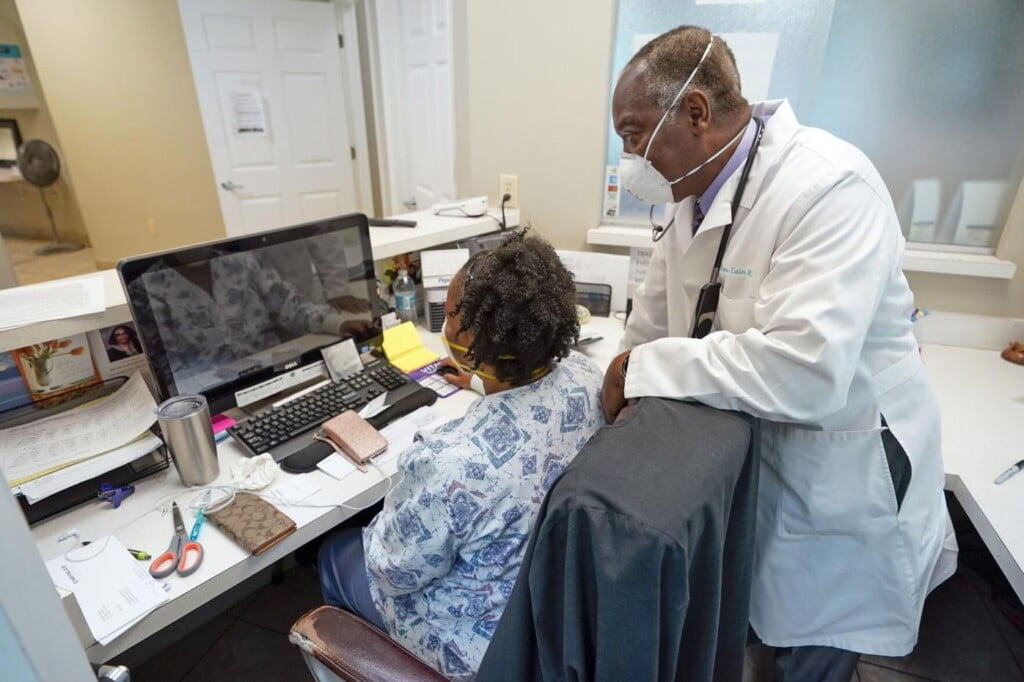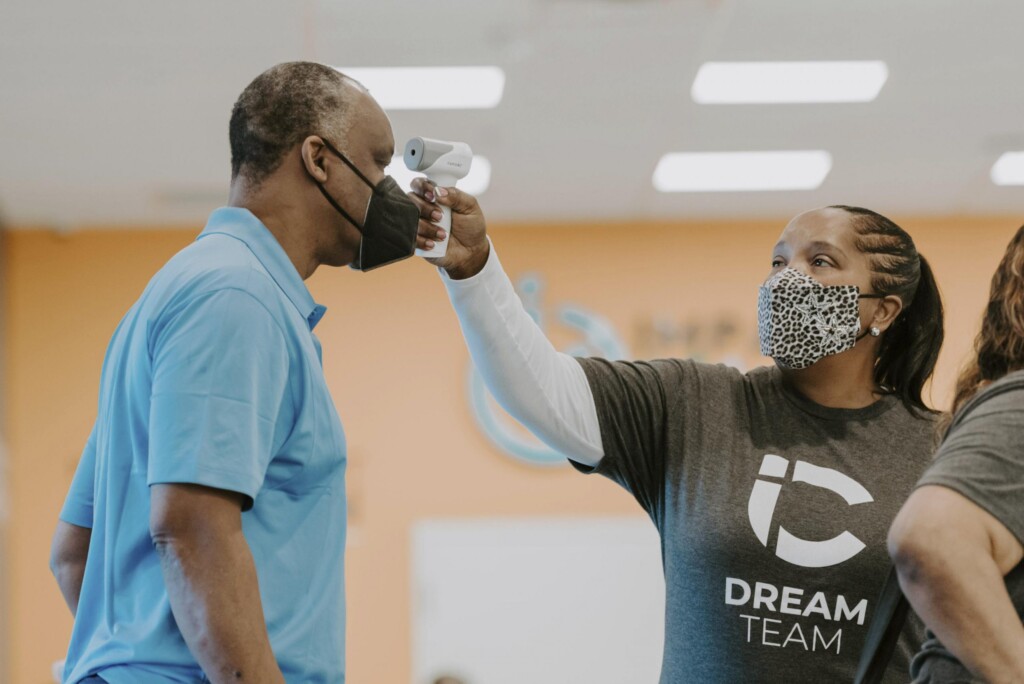Hospitals in northeast Florida, the epicenter of the state’s newest outbreak, are at capacity with COVID patients.
While one COVID patient is discharged, another waits for a bed in northeast Florida, the epicenter of the state’s most recent outbreak. However, patients at Baptist Health’s five hospitals in Jacksonville are younger and more susceptible to the virus than they were last summer.

Baptist already has over 500 COVID patients, more than double the amount during the peak of Florida’s July 2020 outbreak, and the onslaught is showing no signs of abating. Hospital officials are closely watching ten prediction models, converting vacant spaces, adding over 100 beds, and “bracing for the worst,” according to Dr. Timothy Groover, temporary chief medical officer for the hospitals.
“Jacksonville serves as a sort of hub for this. They had one of the lowest vaccination rates in the state heading into July, which has definitely come back to hit them,” said Justin Senior, CEO of the Florida Safety Net Hospital Alliance, which represents some of the state’s major hospitals.
Duval County, which is nearly completely comprised of Jacksonville, is an ethnically diverse Democratic stronghold that was won by Vice President Joe Biden. The majority-white rural counties that surround it largely voted for Donald Trump.

However, all had lower-than-average vaccination rates prior to the highly infectious delta variant sweeping through this area of Florida, escalating caseloads in a state that now accounts for one in every five COVID hospitalizations worldwide.
Nearly one-third of Jacksonville’s population is African American, and the city’s racial tensions extend all the way back to the Civil Rights era when 150 white men attacked 40 young Black people who sat at a whites-only department store lunch counter with axes and baseball bats. Although the 1960 battle was a watershed moment for equal rights in the city, distrust of government officials persists.
The city is within a five-hour drive from Tuskegee, the site of the infamous “Tuskegee syphilis research,” in which the government recruited unwitting Black men as guinea pigs in a sexually transmitted illness study. Groover, who is Black, understands why people are skeptical, despite the fact that his hospital system claims to provide the greatest quality treatment possible through the use of cutting-edge technologies.
The system is trying over time to spread the pro-vaccine message, but it is up against falsehoods that spread from social media feeds to neighborhood BBQs and church congregations. The Associated Press was told by black community leaders that they had heard everything, including that the government is using the vaccination to implant tracking devices.
“A lot of rumors,” Dr. Rogers Cain, a Black primary care physician with a primarily Black practice, said, adding that it’s easier to convince his older patients to get the vaccination than it is to convince his younger patients. “We’ve made a concerted effort to educate. However, it has not materialized.”
“Those who were genuinely nearest to the Tuskegee event received the vaccination the quickest,” he explained.
While Duval County’s immunization rate of 56% is in the center of Florida counties, it has increased by 17% since early July, one of the state’s biggest increases.
Vaccine hesitancy is especially strong among Hispanics, who make up 10% of Duval’s population, according to Dr. Leonardo Alfonso. He rotates between two additional Jacksonville hospitals’ emergency departments, working on his days off due to staffing shortages. Typically, one sees approximately 50 people, but on certain days, it may see as many as 100.
“The intensive care units are overflowing. They’re out of ventilators,” Alfonso lamented. “Human beings are dying. It is entirely preventable.”
Gov. Ron DeSantis recently directed the establishment of a fast response unit to assist in the delivery of monoclonal antibody treatment to a broader spectrum of higher-risk patients who get infected, with the goal of alleviating “some of the pressure” on local hospitals.
Alfonso believes vaccines might have averted this spike, but when he asks patients if they received their shots, he receives a “deer in the headlights expression, kind of a blank face, as if they didn’t take it seriously or brushed it aside because they were young and healthy.”
Experts argue that convincing the reluctant to protect themselves and others around them is a ground game.
“We’re putting ourselves in front of as many audiences as possible,” Dr. Groover stated.
His father is the pastor of one of the area’s largest mostly Black churches, where Groover reports that some parishioners have informed him they don’t need a vaccination because God will protect them. At a recent Sunday service, the doctor addressed the audience, attempting to dispel misconceptions and detailing how he has witnessed families destroyed by sickness and deaths that vaccinations may have avoided.
“I received around ten texts later that day from folks who went to Publix that day and received the shot,” he explained. “A sizable portion of the membership is now vaccinated.”
Across town, Pastor George Davis buried six church members under the age of 35 in only ten days at Impact Church. All had been in good health and had been unvaccinated. Davis has lost several friends, including a 24-year-old guy he had known since he was a baby, a young lady on the worship team who was celebrating her first wedding anniversary only weeks before her death, and another man in his early 30s whom Davis mentored for years.
The mostly young, Black megachurch of 6,000 members has a hipster atmosphere, with modern music and a casual dress code that includes jeans and shoes. Davis has collaborated with community health authorities to dispel misunderstandings about the delta variant’s impact, following months of officials claiming the sickness couldn’t do much harm.
Now, members of his congregation may easily stroll across the hall on Sundays and speak with a medical professional about their vaccination concerns. Davis also sponsored two immunization campaigns, during which over 1,000 people received injections.
“Honestly, as a pastor, we don’t have much time to lick our wounds,” he explained. “Like a police officer, they must grab for their firearm to defend those who remain.”

